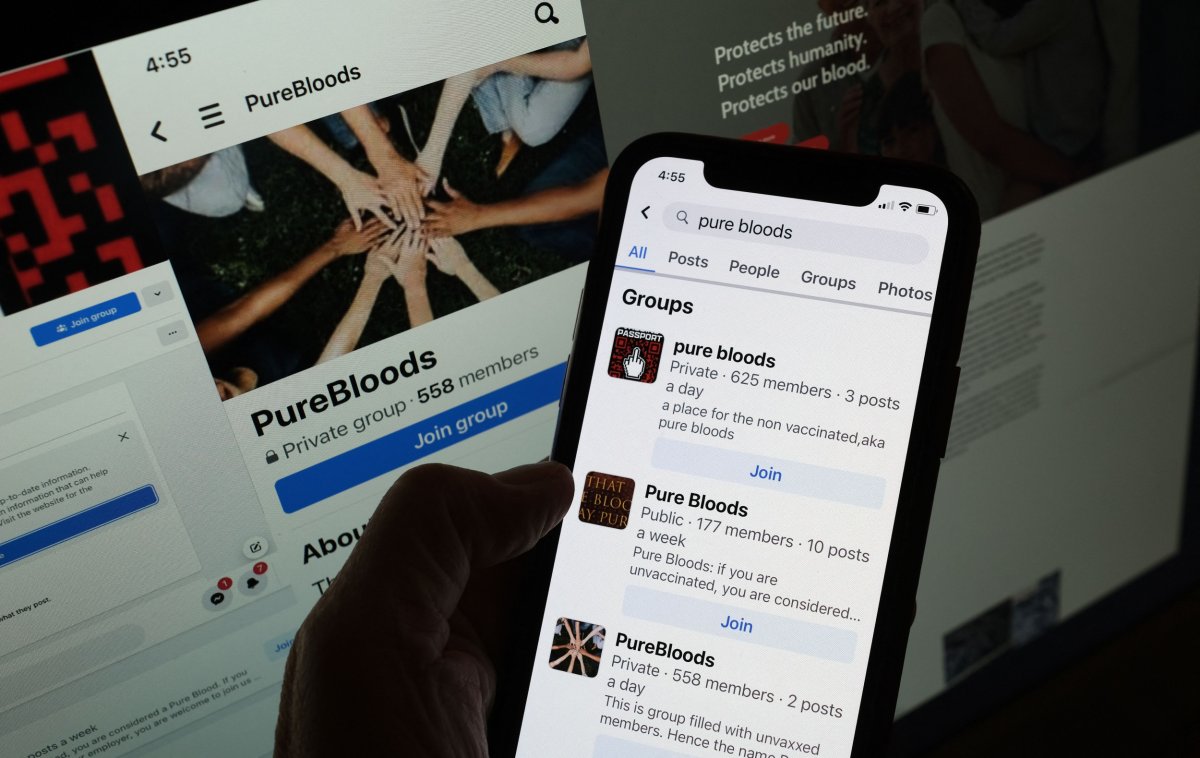Since 2020, officials from the White House, Centers for Disease Control and Prevention, and other federal agencies have been in frequent contact with social media companies about stopping public health misinformation on their platforms. This kind of dialogue is not uncommon, but it also raises questions. Chief among them: at what point does government communication veer into government censorship, thereby violating the First Amendment?
An ongoing court battle has been grappling with that question with little clarity, bringing things all the way to the Supreme Court. For context, a website owner, four social media users and the Missouri and Louisiana state attorneys general sued the agencies in question, alleging their First Amendment rights were violated when posts on topics like vaccine side effects and pandemic lockdowns were removed or downgraded by some of the platforms.
The First Amendment, of course, doesn't apply to decisions by private companies. But the plaintiffs have crucially argued that the platforms acted in response to government pressure. In their view, public officials were the ones pulling the strings, exerting so much control over Facebook and Twitter that the platforms effectively became government actors. The federal district court judge who heard the case came down hard on the government, banning a litany of officials from almost any kind of communication with the platforms.

That, however, was only the start of the debate. Upon appeal, the Fifth Circuit Court of Appeals scaled back the district court's injunction to apply to a smaller list of entities that still includes the CDC. Just as notable, the injunction was narrowed to only ban government coercion or efforts to significantly encourage companies to remove or downgrade posts.
That seems reasonable at first glance. Regardless of your views on vaccines, the government shouldn't have carte blanche to circumvent the First Amendment and censor speech it doesn't like by putting pressure on third parties. As a factual matter, the government can't directly demand the removal of content or issue direct or indirect threats to achieve that result. And yet the government still has its own speech rights and needs to be able to communicate with private actors to do its job.
One might therefore say the revised injunction is a good balance of competing interests. And yet the Fifth Circuit's guidance still didn't resolve the crucial questions: what actually constitutes coercion and significant encouragement?
For the Supreme Court, the answer will hinge on the exact nature of the government's communication with the platforms. Consider the CDC example. We know the CDC issued advisories to platforms warning them about misinformation "hot topics." It also instructed platforms to label disfavored posts with "contextual information," and asked for "amplification" of approved content. Eventually the platforms began reaching out to the CDC to find out whether specific health and vaccine claims were accurate. The CDC's answers to these questions impacted the platforms' content moderation decisions.
While the Fifth Circuit did not find that the CDC coerced the platforms into removing posts, it did find that it engaged in significant encouragement, which the Fifth Circuit defines as when the government "exercise[s] some active, meaningful control over the private party's decision." And yet so many examples from the case—the platforms running moderation policies by the CDC, choosing to remove claims only after the CDC debunked them and so forth—sound like the platforms asking the CDC for insight and then following suit. Indeed, they could be construed more as the platforms acting out of a desire to align themselves with a trusted source of health information rather than the CDC displaying "active, meaningful" control.
In the end, a government message is considered coercive when it can be reasonably understood as suggesting there will be some kind of punishment or consequence if the recipient doesn't comply. Like most cases involving speech, this is heavily dependent on context, including the speaker's word choice and tone, whether the speech refers to adverse consequences, the speaker's authority to make good on a threat and whether the speech was perceived as a threat.
Ultimately, the Fifth Circuit application of this test—whether with the CDC or the other agencies in question—is muddled. When it had a chance to clarify when government persuasion turned into government control, the Fifth Circuit essentially took the view that once government persuasion succeeds, it automatically becomes government control. When it comes to whether government communications were perceived as threats by the platforms, the court likewise assumes they must have been perceived as threats because the platforms complied.
None of this provides much of a framework for government employees to figure out how they can make sure their communications with social media companies are constitutional. To be clear, there are legitimate reasons to worry about government influence over platforms. As Mayze Teitler at Just Security wrote following the district court's opinion, "...a thoughtful First Amendment analysis would articulate a principled way of distinguishing legitimate government speech from illegitimate government coercion."
And yet neither the district court nor the Fifth Circuit made those distinctions. Should public statements be evaluated differently than private email exchanges between White House and Facebook staffers? Should communications targeting specific users or posts be treated differently from more general content moderation recommendations? Does it change the calculus if the platform voluntarily sought out the government agency's input?
Failing to get answers, First Amendment defenders will now wait to see if the Supreme Court finally provides clarity.
Lata Nott is a fellow for the First Amendment at the Freedom Forum.
The views expressed in this article are the writer's own.
Uncommon Knowledge
Newsweek is committed to challenging conventional wisdom and finding connections in the search for common ground.
Newsweek is committed to challenging conventional wisdom and finding connections in the search for common ground.
About the writer
To read how Newsweek uses AI as a newsroom tool, Click here.








